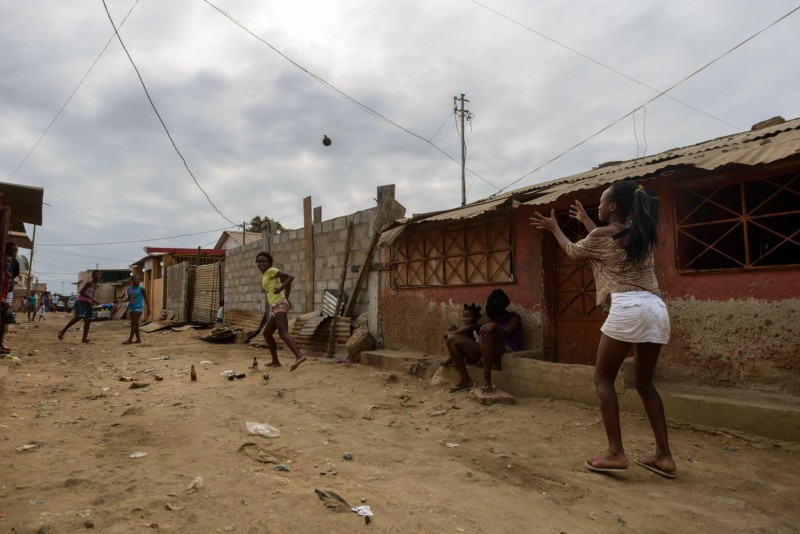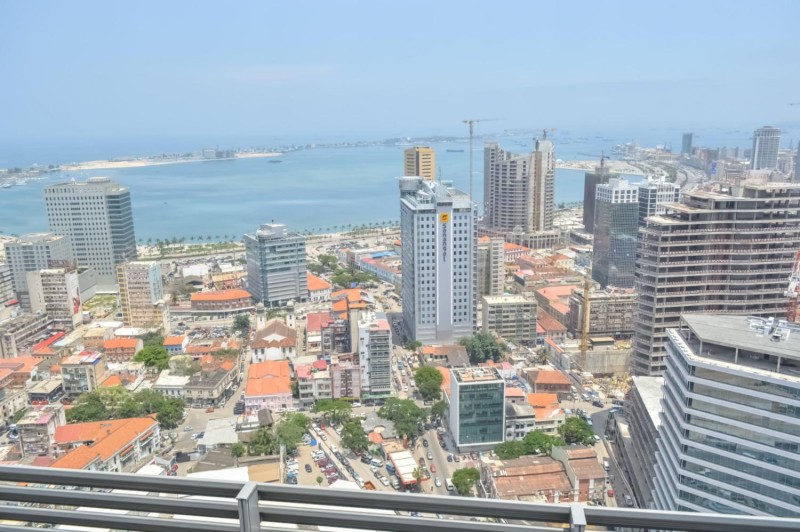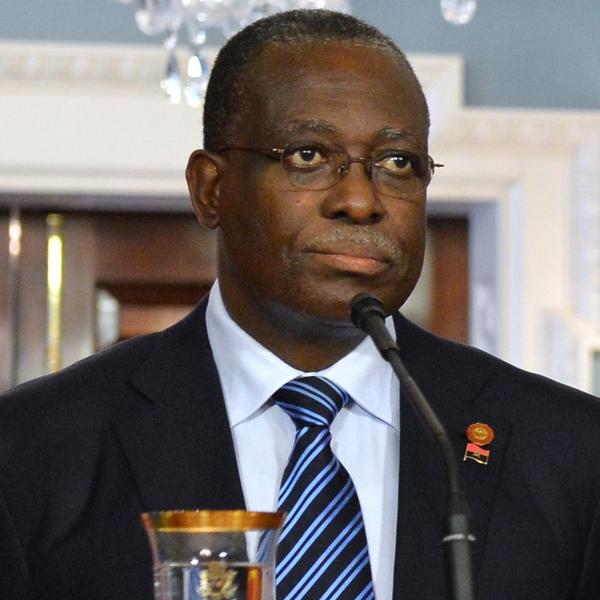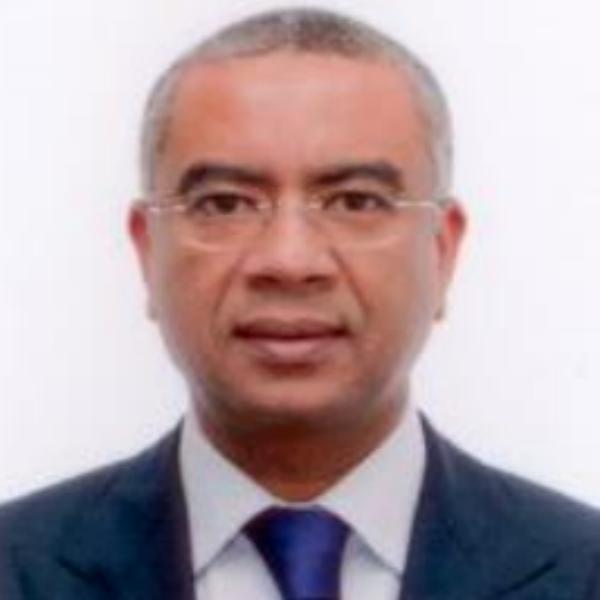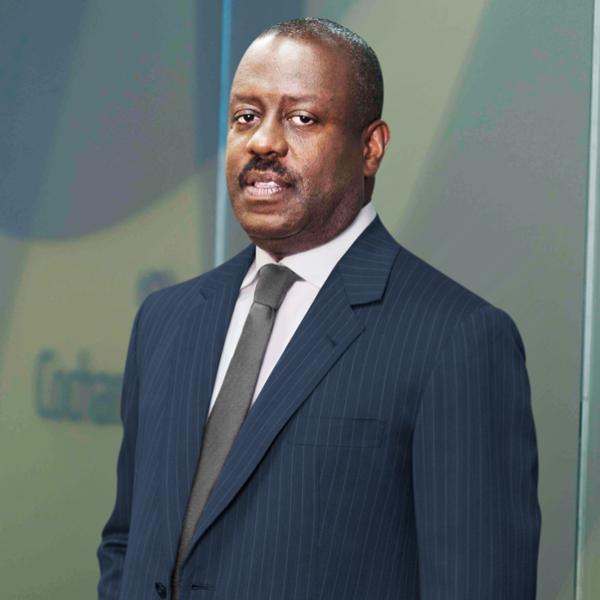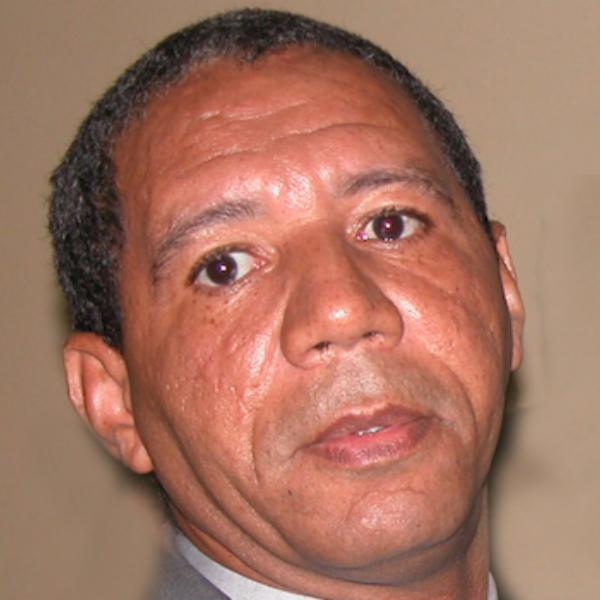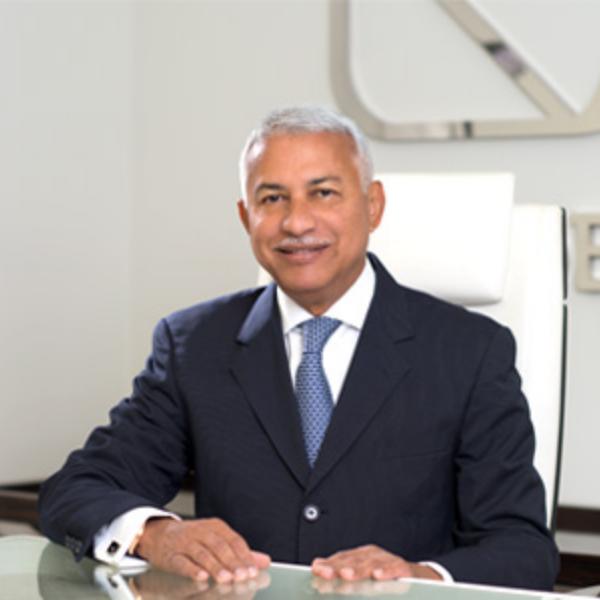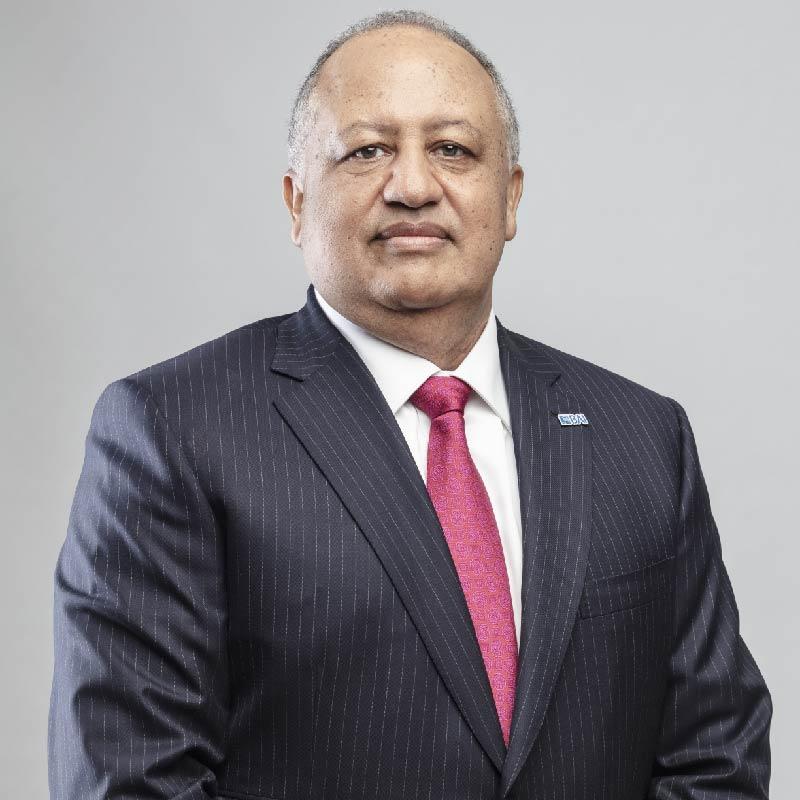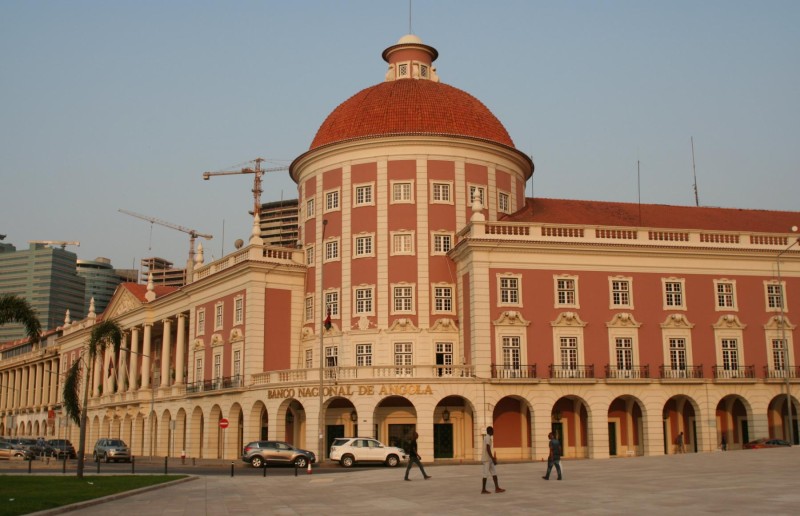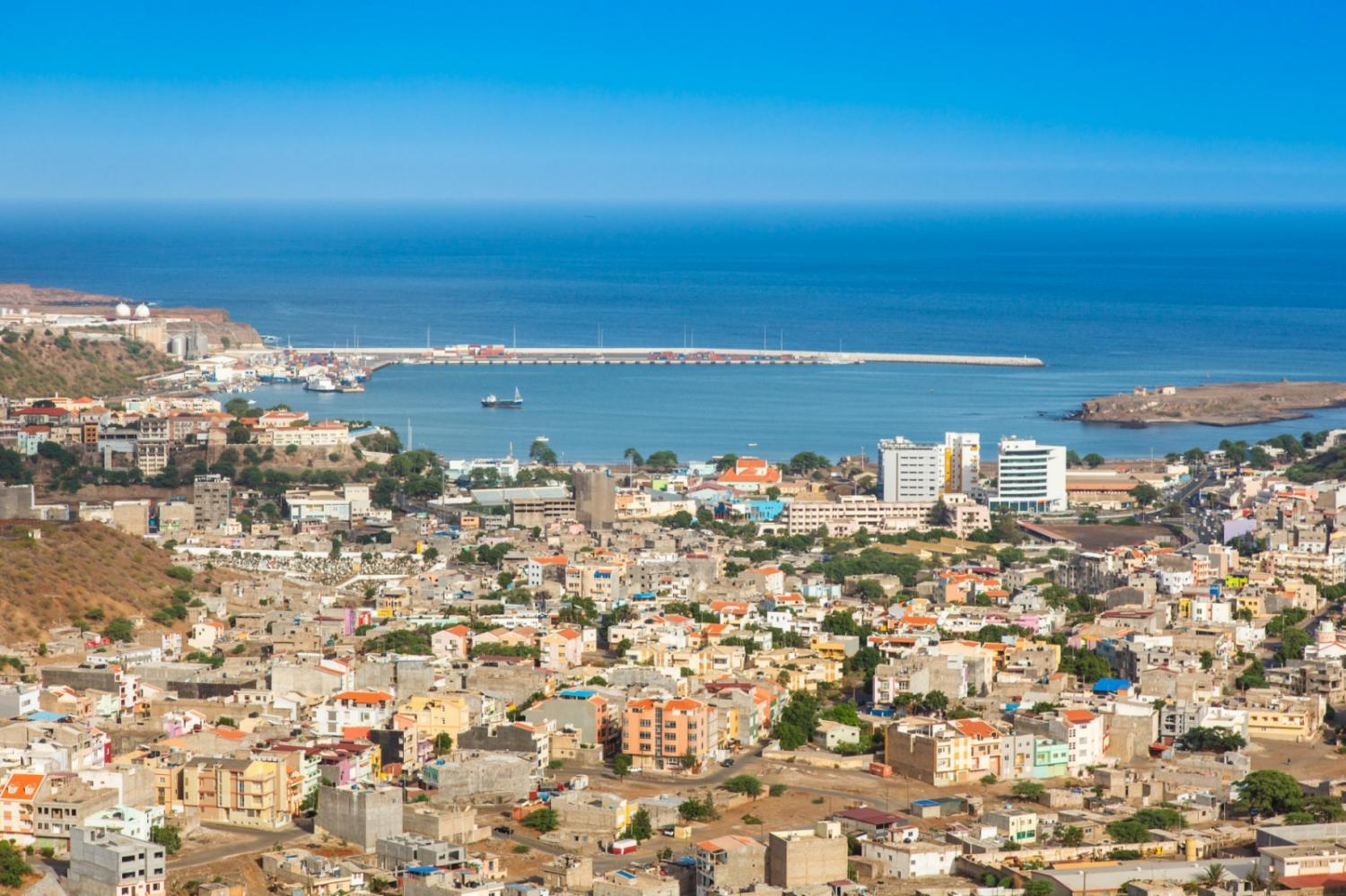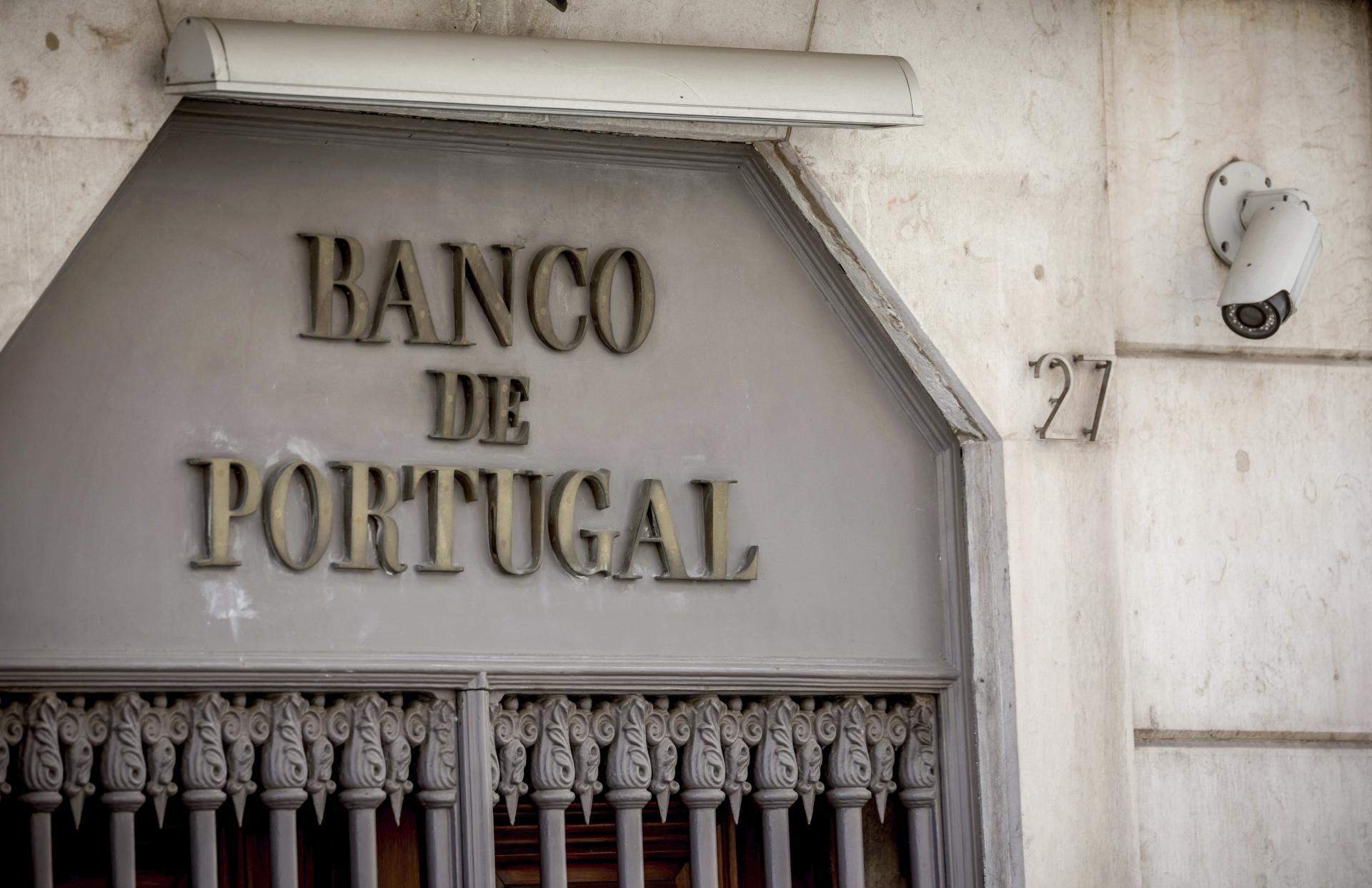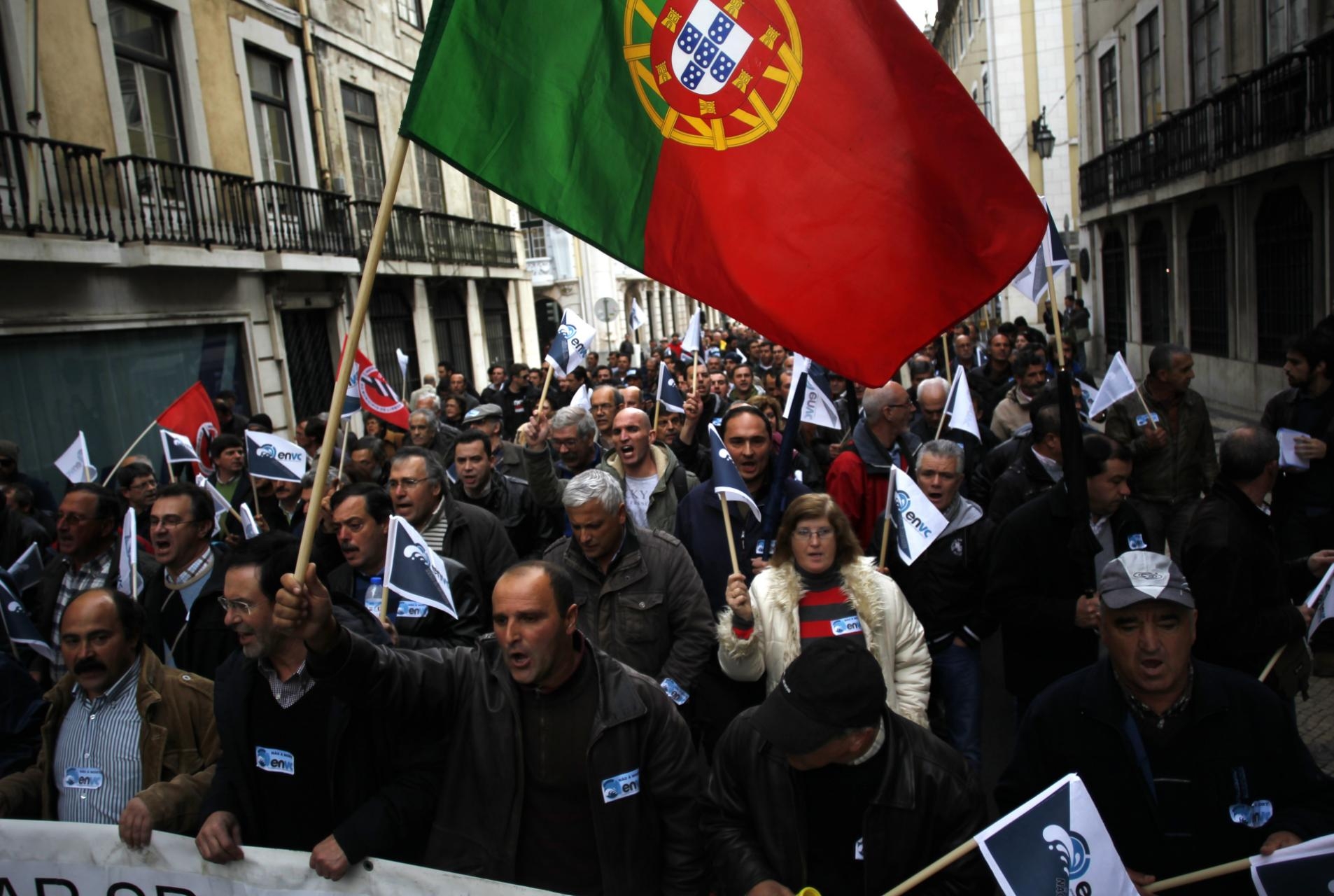A group of Angolan government officials and senior bank executives funnelled hundreds of millions of dollars out of the country with little oversight, creating their own private banking network through which they sent the money to Portugal and elsewhere in the European Union, an OCCRP investigation has found.
The network sent at least $324 million through its banks, with most of the funds originating in Angola. In addition, $257 million was found to be held by European companies closely affiliated with these officials.
The scheme was documented in 2016 by Portuguese regulators in two audit reports, which have not previously been made public. In the reports, the banks the group established and used were described as having violated dozens of Portuguese banking regulations. The audit findings, in which the group's millions were flagged as highly suspicious, were brought to the attention of Portuguese and European Union officials, but the secretive financial network still functions today.
“Portugal’s leadership wasn’t sensitive to the long term damage that laundering this money would do to the country,” said Ana Gomes, a former Portuguese member of the European Parliament.
Aside from hurting Portugal’s reputation, the network continues to corrupt the country, she added.
Gomes said in an interview that its operation required a “spreading web of corruption and tax evasion engineered by many Portuguese lawyers, bankers, accountants, consultants, business people, civil servants, and politicians.”
The ongoing scheme has had even more dire implications for Angola.
Nearly half the southern African nation’s population lives in poverty. Some of the money that disappeared into the network could have been spent on infrastructure, education, or health clinics.
Two men who worked closely with former Angolan President José Eduardo dos Santos, who left office in 2017 under a shroud of corruption allegations, appeared to be the system’s architects: former Vice President Manuel Vicente and his business partner Leopoldino Fragoso do Nascimento, better known as Dino. A retired general and ex-head of presidential communications, Dino is one of Angola’s richest people.
Dino and the Angolan presidency did not respond to a request for comment. Vicente could not be reached for comment.
More than a dozen influential officials and their family members have used the system. For example, companies allegedly associated with Isabel dos Santos, the daughter of the former president, received millions.
Much of the elite group’s wealth has been tied to Sonangol, Angola’s state oil company and the source of at least 75 percent of the country’s public revenues.
"Under Vicente, Sonangol went from being a fairly-focused oil company to becoming a constellation of more than 70 joint ventures and subsidiaries operating on four continents, really a maze of interests based on oil but massively extending beyond the oil sector,” said Ricardo Soares de Oliveira, a professor of African politics at the University of Oxford and an expert on Angola’s banking sector.
Money was also skimmed from other public sources, including reportedly more than $150 million in loans from Angola’s central bank that were never repaid.
The money pipeline started in Angola, where political connections allowed the elites to escape the scrutiny of regulators. The group exerted control over some of the country’s largest lenders, including Banco Africano de Investimentos (BAI), Banco de Negocios Internacional (BNI), and Banco Privado Atlantico (BPA).
The Angolan elites then extended the pipeline by setting up foreign branches of BNI and BPA, and effectively becoming both shareholders and clients of these banks. This allowed them to transfer vast sums of money through a private banking network with little scrutiny.
The foreign branches — two in Portugal and one in Cape Verde — did not implement standard anti-money laundering and terrorist financing controls and failed to carry out any due diligence on clients tagged as suspicious by international regulators. The banks had very few other customers, often making little money or even operating at a loss, suggesting that profitability was not their primary purpose.
Many details about the network are found in the two audit reports by the Bank of Portugal, the country’s central bank. To uncover the vast Angolan-European pipeline, reporters also combed through internal correspondence, confidential documents from investigators that were not included in the audit reports, and public sources such as corporate data. Reporters did not have access to the banks’ client lists, so it was not possible to determine the exact amounts sent or received by specific individuals.
But the fact that Angolan elites were able to send hundreds of millions through their network – and that it continues to operate despite the damning Portuguese audits – raises serious questions about the ability, or willingness, of Portugal and the EU to stop illicit financial flows. The European Central Bank did not respond to requests for comment.
Following the publication of the Luanda Leaks investigation by the International Consortium of Investigative Journalists, which exposed massive corruption by Isabel dos Santos and her associates, regulators are paying renewed attention to Angolan elites in Portugal. Dos Santos has denied the allegations.
The Secret Bankers
First Priority: Get a Bank
The first major component of the Angolan elites’ financial network was Banco Africano de Investimentos (BAI). Several members of the group created the bank in the Angolan capital, Luanda, in 1996, making it the country’s first private lender.
The new bank was buoyed by support from Sonangol, which was its biggest shareholder. Over the years, the relationship between Sonangol and the bank became an important conduit for corruption.
In addition to the more than $300 million the Angolan elites moved through their financial network, OCCRP’s investigation shows that several members of the group received shares in BAI for free. Sonangol transferred just over 40 percent of the bank’s shares to them — yet another way of funnelling the country’s oil wealth into the elites’ pockets. The value of Angolan banks is not publicly listed, but an analysis of similar banks in neighboring countries suggests the shares could have been worth over $150 million in 2017.
Sonangol did not respond to requests for comment.
The group that set up BAI included Vicente, at the time a fast-rising executive at Sonangol. Also involved was Mario Palhares, the former deputy governor of Angola’s central bank, which granted authorization for BAI to become operational.
Palhares was one of several people to hold roles both within BAI and with the regulatory institutions responsible for overseeing the bank. He became BAI president after Aguinaldo Jaime left the role to head the central bank. U.S. investigators later said that Jaime “invoked his authority” at the central bank to improperly send money to a private account. Another of BAI’s initial senior administrators was Joaquim Costa David, who had previously headed Sonangol and later became Minister of Finance.
Within months of its creation, BAI had established correspondent accounts with the U.S. subsidiary of the U.K. banking giant HSBC. Those controlling the bank used this relationship to transfer money to companies and private bank accounts belonging to themselves, their family members, and their associates. They also used BAI to issue credit cards they could use internationally.
By 1998, the bank had become essentially a “credit card” and money laundering vehicle for the elites in Angola, according to a 2010 investigation by the U.S. Senate. Investigators flagged the money sent to the U.S. through BAI as likely of illicit origin, since it belonged to public officials who had no legitimate explanation for such massive incomes, and noted that the bank was run “under the close direction of Sonangol.”
Bailing out the Bankers
The Cape Verde Connection
A decade after creating BAI, the group began to expand its banking network beyond Angola.
They looked first to the West African island nation of Cape Verde, a former Portuguese colony known as an international tax haven. In 2006, the group set up a bank there called Banco Privado Internacional (BPI), named similarly to Banco Privado Atlantico, an Angolan bank they established the same year.
“Cape Verde was absolutely crucial,” said Gomes, the former European Parliament member. “They used it as one of the steps to diffuse the origin of their money.”
The Cape Verde bank is not known to have any genuine physical presence in the country beyond a mailbox address in the capital, Praia. It operated in almost complete opacity, failing to share any information about its activities and publishing no annual financial reports.
In addition to chairing the similarly-named Angolan bank, Vicente was the largest shareholder in BPI, with a 35 percent stake, according to the Bank of Portugal audit. Palhares held 30 percent. General Joao de Matos, former chief of staff of the Angolan Armed Forces under then-President dos Santos, held 25 percent. Another 10 percent was owned by Jose Garcia Boyol, who was president of the bank while also serving as vice president of another bank controlled by the group.
The shareholders of the Cape Verdean bank frequently exchanged shares with each other in an apparent attempt to avoid regulatory scrutiny. In one such example noted in the audit, the bank asked the country’s central bank for permission to transfer all of Vicente’s shares to Palhares, demonstrating a trusted business relationship between one of Angola’s most senior public officials and one of its leading bankers. In that case, the government declined their request.
The Portuguese audit reports show that money from Angola passed through Cape Verdean accounts to other banks that the group controlled in Portugal and elsewhere in Europe.
Cape Verde’s central bank, responsible for regulating the country’s lenders, did not respond to requests for comment, while BPI could not be reached for comment.
However, the Angolan elites were still exposed to regulators, as the money that passed through Cape Verde went to other financial institutions not under their control.
To solve that problem, they needed to create their own banks in Europe.
European Expansion
In 2014, the group received permission from Portuguese authorities to launch a new bank, BNI Europa, in Lisbon. This was a foreign branch of Banco de Negocios Internacional (BNI), an Angolan lender largely controlled by Palhares, the former central bank official.
BNI Europa’s physical presence amounted to a single desk in one building. By December 2015, the bank still had only 97 authentic clients, mostly Angolan.
Share Capital
As in many other countries, Portuguese law requires a newly established bank to hold a certain level of financial reserves that must be submitted by the bank’s shareholders in the form of share capital.
To establish a European customer base, the bank partnered with Saving Global, an online German investment system, adding a further 2,400 clients. However, these clients represented just six percent of the money flowing through the bank, and none held accounts there. They used the institution only as a platform to transfer funds. Saving Global did not respond to requests for comment.
In reality, BNI Europa appeared to exist solely as a financial conduit for funds leaving Angola. The bank was “entirely dependent” on BNI, its Angolan parent branch, the auditors said, with 85 percent of the bank’s assets in 2016 originating from there.
Because the money was sent from BNI to its own branch, these transfers were shielded from legal and financial inquiry. Auditors concluded that BNI Europa had no information about the source of these funds.
Moreover, because BNI Europa is almost entirely owned by its Angolan parent bank, the money flowing from one to the other was still providing value to the same shareholders. The funds had not really changed hands, but had now been successfully moved into Europe with little scrutiny.
BNI’s Shareholders
BNI’s first shareholders included Welwitschia dos Santos and Jose Paulino dos Santos, two children of Angola’s then-President, José Eduardo dos Santos. However, both had transferred their shares to others by 2008.
The Portuguese auditors discovered a dearth of basic due diligence practices at BNI Europa.
The bank had no procedures to establish standard information about its customers. It also lacked anti-money laundering tools to vet transactions, some of which the audit described as “enormous,” including those involving politically connected customers.
The bank’s compliance team consisted of one officer who was not allowed to access the accounts of certain clients. For example, the account belonging to the son of the bank’s largest shareholder, Mario Palhares, was off-limits, according to auditors. Palhares’s daughter, Lucia, came on board as a client manager and directly opened accounts for customers that banked with its parent company, BNI. Palhares could not be reached for comment.
After conducting a sample audit of BNI Europa’s clients, investigators found that no substantive information had been collected on about 71 percent of individuals and 100 percent of corporate clients. The bank should have investigated a large majority of the clients included in the sample, auditors said.
BNI Europa also lacked access to accounts opened by its parent bank, essentially placing the bulk of its own financial activity beyond its purview. In a June 30, 2016 letter to auditors, BNI Europa said it was unable to provide records of transactions flowing through its accounts, because only its parent bank had them.
“We offer our sincere apologies,” BNI Europa wrote.
In response to reporters’ requests for comment, a spokeswoman for the bank said: “The nature of our business and the law impose on us a special duty of confidentiality, which prevents Banco BNI Europa from properly responding to your request ... Banco BNI Europa has acted with due transparency towards all authorities and notes that, so far as it is aware, no charges, accusations, or fines have been imposed on it in connection with any such allegations.”
BNI did not respond to requests for comment.
Branching Out
The elite Angolan group also opened a Portuguese branch of Banco Privado Atlantico (BPA), another bank they controlled in Angola.
A majority of shares in the new bank, BPA Europa, are owned by Carlos da Silva, a lawyer widely considered an associate of Vicente. The bank’s opaque European ownership structure also includes about a dozen companies largely held in tax havens such as Luxembourg, where their true beneficial owners can be represented by proxies. Da Silva could not be reached for comment.
On the surface, the business the bank’s divisions reported in 2016 did not seem out of the ordinary: Corporate customers received loans worth 125 million euros and made deposits of 57 million euros.
However, when auditors opened up the books in early 2016, they found that more than 60 percent of the bank’s reserves came from Angola’s central bank or from deposits made by high-risk Angolan banks in which top government officials owned shares.
In a similar tactic to BNI, the bank partnered with German fintech company Savedo to grow its European customer base.
“We take accusations against banks that use our platform very seriously,” the company’s head of communications, Attila Rosenbaum, said. “The moment a bank loses its license or permission [from the supervisory authority] the cooperation with [that bank] will be terminated.”
BPA Europa was also largely dependent on Angolan capital, with a client list of politically influential Angolans that included Dino, Vicente, and his associate, da Silva. The bank’s staff appear to have avoided looking into the accounts of some of its most sensitive customers, such as Vicente’s son. The bank, which is now known as Banco Atlantico Europa (BAE), said that "less than 1 percent" of its clients are politically exposed, and that it performs enhanced due diligence on them.
Some of these major clients were also the bank’s shareholders and directors. The arrangement allowed the bank to move money on their behalf using a variety of opaque techniques, which obscured the origin of the funds.
A spokesman for the bank said it has “no politically exposed person or any bank in our shareholder structure.” He added: "Angola is an important market for BAE, but BAE has many other lines of business.” It has more than 20,000 "affluent active clients," most of whom are Portuguese, he said.
The Bank of Portugal audit found that companies associated with the influential Angolans, and already flagged as problematic by Portuguese authorities, did regular business with BPA Europa. For example, Dino and his wife held multiple accounts at the bank, including one associated with Cochan, a company he controlled that reportedly made multi-billion-dollar deals with Sonangol in partnership with international commodity trader Trafigura. Alongside Vicente and Kopelipa, Dino was identified in U.S. court documents as amassing vast wealth through oil-related deals involving Sonangol.
BPA Europa’s shareholders used the bank’s financial infrastructure to stash millions of dollars sourced from Angola in holding companies with European bank accounts. One such client was the Angolan-based company GAM Holdings, which is alleged to be connected to Isabel dos Santos, the daughter of the country's former president.
The transfers, which totalled at least 63 million euros, were sent to several companies, including subsidiaries of GAM Holdings, whose majority shareholder, Antonio Mosquito, was considered by Angolan media to be a business associate of dos Santos.
In a series of emails, dos Santos denied any dealings with Mosquito or Vicente.
Dos Santos and GAM Holdings
Isabel dos Santos has challenged the evidence that links her to the company mentioned in the audit report.
Portuguese auditors found that BPA Europa did not follow the required “Know Your Customer” rules. They identified a lack of basic due diligence, producing a list of breaches and violations that included the use of outdated electronic systems that could allow unauthorized people to handle accounts on the bank’s behalf.
Auditors said the bank tended to not acquire basic knowledge of its customers, commenting that the “characteristics of ultimate beneficial owners of corporate bodies are not taken into account ... because they are not loaded onto the system.”
BPA Europa also lacked the tools to identify potentially suspect relationships and transactions by corporate, institutional, and correspondent customers such as other Angolan banks, including BNI and BPA Europa’s own parent bank.
In fact, BPA Europa appeared to have been structured to ensure that such information would not be collected, the auditors found.
Its compliance officers — part-time junior staff who auditors said “did not have any experience in the area” — worked in the open, near other departments. The head of the compliance unit was also the company secretary and “did not even have general knowledge” of money laundering, according to the audit.
The result was a process that “did not allow the identification of a wide range of suspicious movements behind money laundering crimes,” and the consequences were clear.
In over 60 percent of individual client accounts examined by auditors, significant information, such as the purpose of the business relationship or the reason for the transaction, was missing. The same was true for every corporate account.
The auditors noted that the failure of the Angolan banks and their Lisbon branches to conduct due diligence obscured the origins of transactions, creating a perfect environment for money laundering.
A spokesman for the bank said that it “operates under the rigorous rules of the European Central Bank and directly supervised by the Portuguese Central Bank, rules that we fully comply with.”
"BAE fully collaborates with all authorities regarding any matter, including those related with Anti-Money Laundering and Countering Financing of Terrorism or compliance, implementing all determinations and recommendations issued by Supervisors.”
The Bank of Portugal did not respond to requests for comment about specific banks. However, it did say that between 2015 and 2016 it conducted audits of several financial institutions “including those with Angolan capital.” The bank said that its audits resulted in more than 500 supervisory measures and 300 administrative proceedings, including several involving money laundering and terrorist financing.
“Happy to Accommodate”
By 2018, the Bank of Portugal audit had been brought to the attention of the Portuguese government, the European Central Bank, the European Banking Authority, and the European Union’s Commissioner for Economic and Monetary Affairs.
But Portuguese authorities appeared to show little interest in examining its findings, and allowed the Angolan banks to continue operating.
"This was the time of Portugal's financial crisis and it was also the time that Angola's elite were beginning to amass fortunes after their long civil war," said Gomes of the period, during which the Portuguese government was forced to take a $110 billion bailout from the EU.
"So of course Portugal was happy to accommodate Angolans' need to launder their money and reinvest it because it meant an influx of money into the country," she said.
Having grown increasingly concerned about corruption spreading through the banking sector, Gomes pressed for action. In letters obtained by OCCRP, she asked the Portuguese central bank what it was doing, if anything, to stop the suspicious activity taking place at the Angolan banks. The Bank of Portugal did not answer, citing a responsibility to maintain “professional secrecy.”
Gomes and four other European parliamentarians also raised the issue in a letter to the European Banking Authority in 2015, but the agency responded that preventing money laundering wasn't within its mandate. The EBA did not respond to requests for comment.
Several of the powerful Angolans who used the opaque financial network had breached or violated Portuguese and EU anti-money laundering legislation, including a rule that governs the transactions and business relationships of politically-exposed persons. Yet, none of them have been prosecuted.
“The EU needs to take concrete measures to harmonise anti-money laundering ... standards,” said Maira Martini, an expert on corruption and illicit financial flows at Transparency International. “It also needs to consider a dedicated anti-money laundering body with powers to supervise and sanction Member States for failing to comply.”
The banks set up by the Angolans continue to operate in both Cape Verde and Portugal. Hundreds of millions have passed through the parent banks and their branches in recent years, and the exact origin of much of this money remains unknown.
“If even a fraction of these ill-gotten funds had been deployed for more conventional purposes – health, education, good quality infrastructure – not all problems would have been solved,” said Soares de Oliveira, the Oxford professor. “But Angola would be a different country today.”




